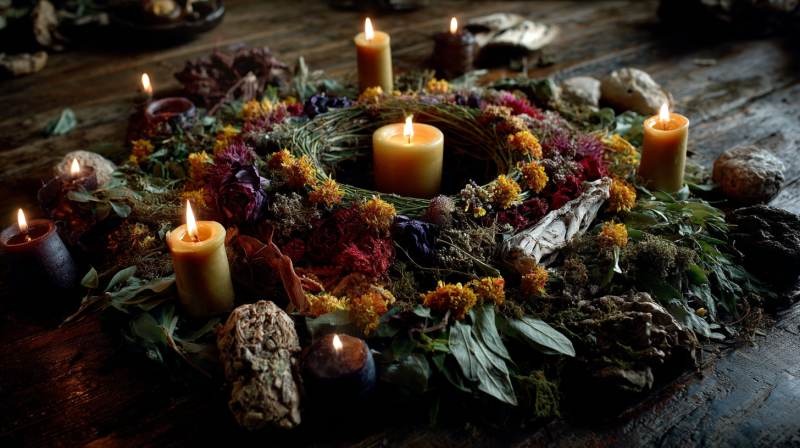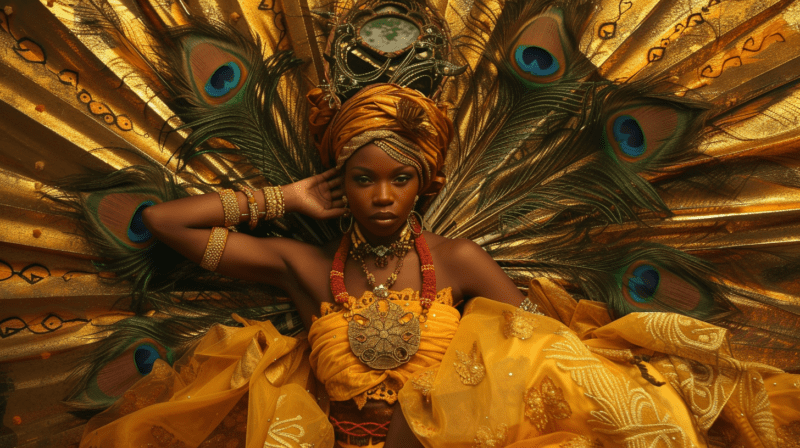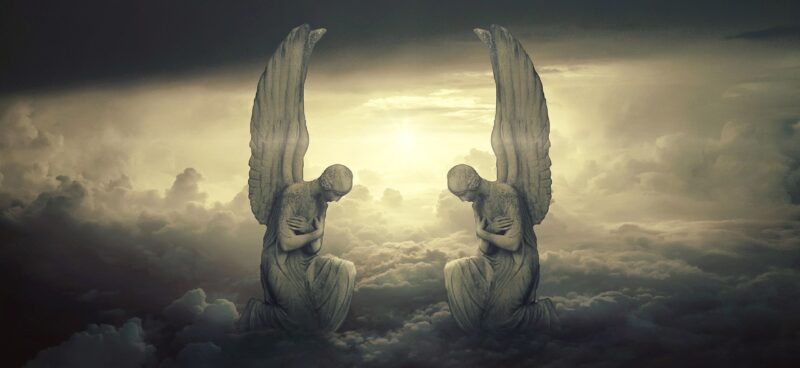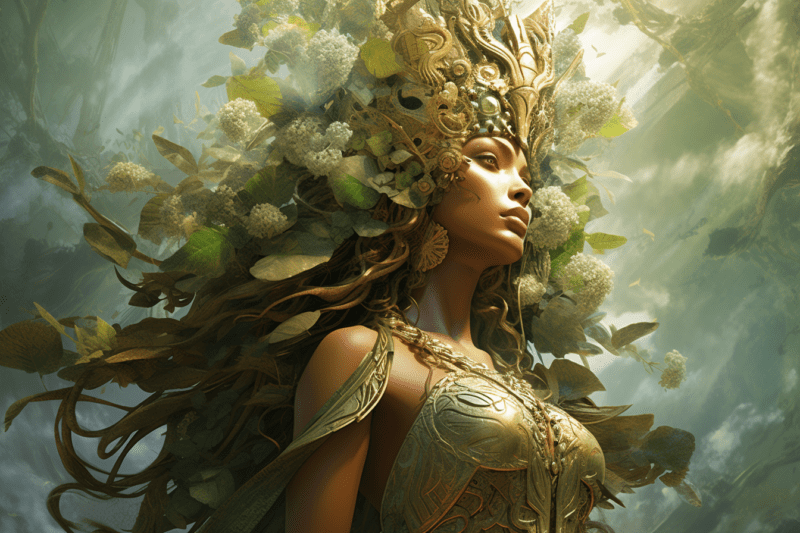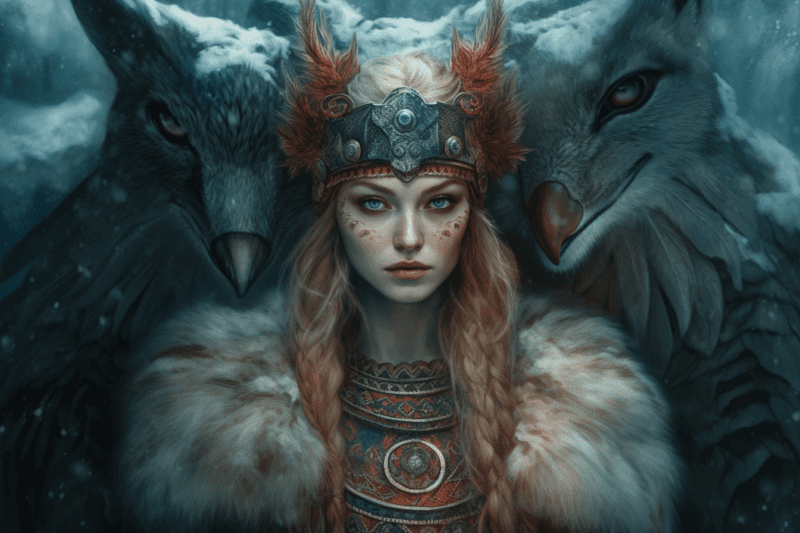Exploring the Divine Weaver of Peace and Creation
In the tapestry of Yoruba mythology, one figure stands out with grace and wisdom, weaving threads of peace and creation into the fabric of existence. Obatala, the Orisha of purity and wisdom, holds a special place in the hearts of those who follow the ancient traditions of the Yoruba people. Join me on a journey as we unravel the myths, symbols, and teachings surrounding this revered deity.
Origin and Mythology of Obatala
Legend has it that in the beginning, Olodumare, the supreme deity, tasked Obatala with the creation of human bodies. With divine clay in hand, Obatala descended from the heavens on a silver chain, bringing life to the earth below. As he molded each form with care and precision, he imbued them with the essence of his wisdom and purity.
One tale recounts the journey of Obatala to Earth, where he encountered challenges and obstacles along the way. Despite adversity, his unwavering determination and sense of duty led him to fulfill his divine mission, shaping the destiny of humanity with his touch.
Attributes and Symbols of Obatala
In Yoruba art and tradition, Obatala is often depicted as a serene figure clad in flowing white robes, symbolizing purity and clarity of purpose. His staff, adorned with intricate carvings, represents authority and guidance, leading followers on the path of righteousness.
Obatala’s attributes encompass wisdom, peace, creativity, and justice, virtues that embody the essence of his divine nature. His presence brings harmony and balance to the world, inspiring reverence and awe among those who seek his guidance.
Obatala in Yoruba Religion and Culture
Central to Yoruba religious practices and ceremonies, Obatala holds a position of honor among the Orishas, revered for his role as a creator and guardian of humanity. Festivals dedicated to Obatala, such as the annual celebration of Obatala Day, serve as occasions for prayer, offerings, and communal feasting, fostering a sense of unity and devotion among worshippers.
Beyond religious rituals, Obatala’s influence extends to various aspects of Yoruba culture, including music, dance, and literature. His presence is felt in traditional songs and chants that pay homage to his virtues, as well as in the moral teachings passed down through generations.
Obatala in the Diaspora
With the transatlantic slave trade, the worship of Obatala found new roots in the soil of distant lands, carried by enslaved Africans to the shores of the Americas. In the Afro-Caribbean religions of Santería, Candomblé, and Palo, Obatala emerged as a central figure, revered alongside other Orishas in syncretic traditions that blend African spirituality with indigenous beliefs.
Adaptations of Obatala’s worship in the diaspora reflect the resilience and creativity of enslaved peoples, who preserved their cultural heritage in the face of oppression. Today, devotees across the globe continue to honor Obatala’s legacy, keeping alive the flame of ancestral wisdom and resilience.
Obatala’s Teachings and Lessons
Embedded within the myths and symbols of Obatala are timeless teachings that offer guidance and inspiration in navigating life’s journey. His emphasis on purity of heart and clarity of mind resonates with seekers of truth and enlightenment, inviting introspection and self-reflection.
Obatala teaches us the importance of humility and compassion, reminding us to approach life with grace and dignity. Through his example, we learn the power of forgiveness and reconciliation, healing the wounds of the past and embracing a future of hope and renewal.
Misconceptions and Challenges
Despite the reverence accorded to Obatala and Orisha worship, misconceptions and misunderstandings persist, fueled by ignorance and prejudice. In the face of cultural appropriation and misrepresentation, practitioners of Yoruba religion and Orisha traditions continue to advocate for respect and understanding.
Challenges such as discrimination and marginalization pose obstacles to the practice of indigenous faiths, prompting calls for greater recognition and acceptance. By challenging stereotypes and fostering dialogue, we can cultivate a climate of tolerance and mutual respect for diverse religious beliefs and practices.
Conclusion
As we conclude our exploration of Obatala, let us reflect on the enduring legacy of this divine weaver of peace and creation. Through myth, symbolism, ritual, and tradition, Obatala continues to inspire and uplift, guiding us on a journey of self-discovery and spiritual awakening.
May his light illuminate our path, leading us to a world of harmony and unity where the threads of humanity are woven together in a tapestry of love and compassion. In the embrace of Obatala’s wisdom and grace, may we find the courage to walk in the footsteps of the divine, honoring the sacred bond that connects us all.

